Tired of glasses or contact lenses? LASIK surgery is the ultimate solution for crystal-clear vision without the hassle of specs. At Save Sight Centre, we use the most advanced laser technology to ensure safe, painless, and precise vision correction.
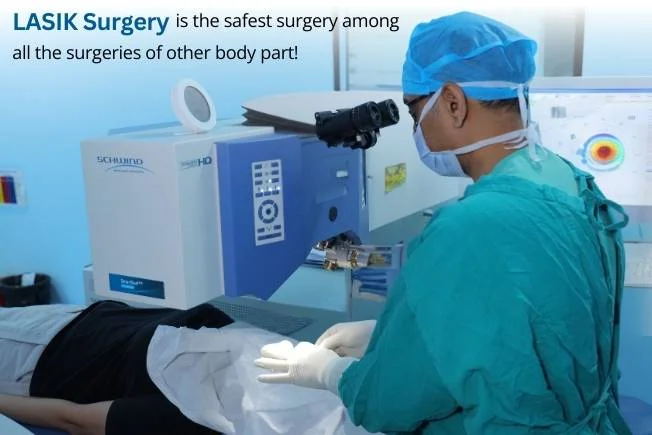
We need spectacles because our eyes might not focus light properly on the retina, which can cause blurry vision. This can happen due to issues like nearsightedness (can't see far), farsightedness (can't see close), or astigmatism (distorted vision).
Thus, after reshaping the cornea the light focuses correctly on the retina, improving vision. This process reduces or eliminates the need for glasses or contact lenses. So, imagine a life without hustling with your spectacles.
This innovative surgical technique is considered as the painless and the safest laser eye surgery to get rid of glasses or eliminate the dependency on contact lenses. This surgery only takes 10-15 minutes for both the eyes.

Not everyone is eligible for LASIK Surgery. Firstly, the doctors will check your retinal health. Secondly, they will conduct corneal topography i.e. Pentacam / Sirius. This test will help examine the cornea health and thickness.
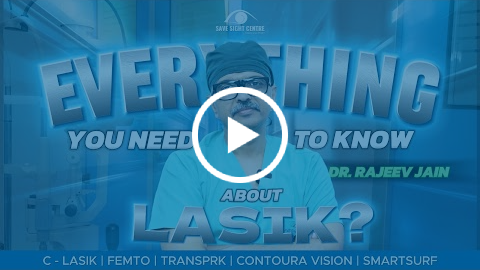
| Type of LASIK Surgery | Power of Glasses | Recovery Time | Cost for Both Eyes |
|---|---|---|---|
| Standard LASIK Surgery | -1 to -8 and +1 to +5 | 1 Week | Upto 20,000 |
| Customized LASIK (C-LASIK) | 1 Week | 30,000 - 40,000 | |
| Sub Bowman’s LASIK Surgery (SBK)(Thin Flap) | 1 Week | Upto 45,000 | |
| Femtosecond (Bladeless) LASIK | 1 Week | 75,000 | |
| TRANS PRK / EPI Contoura | 2-3 Week | 60,000 | |
| Contoura Vision / Topoguided Contour | Can be added with all the above Types | 15,000 | |
| SmartSurf | -1 to -8 and +1 to +5 | 2-3 Weeks | 90,000 |
| ICL / IPCL Surgery | -8 to -18 and +1 to +5 | 1 Week | 90,000 - 1,80,000 |
| RLE / CLE | Any Power | 1 Week | 70,000 – 1,00,000 |
Myopia, or nearsightedness, is a condition where distant objects appear blurry, making them hard to identify. It occurs due to an elongated eyeball or irregular eye shape.
Symptoms include clear vision for nearby objects, like reading a book or using a computer, but difficulty seeing far-off things like a movie or TV. Straining to see distant objects can cause headaches and eyestrain.
Causes may include heredity, excessive near work and lack of outdoor activity and less sunlight exposure. In India, about 13% of teenagers are myopic, and the widespread use of 300 million smartphones may play a role.
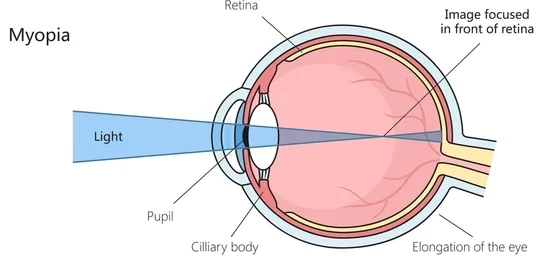
Hyperopia, or farsightedness, is a condition where both distant and near objects appear blur, but close-up tasks like reading or using a phone can be challenging. It occurs due to a shorter-than-normal eyeball or irregular corneal shape, causing light to focus behind the retina instead of on it.
Symptoms include difficulty focusing on objects, eye strain, and headaches, especially after prolonged close-up work. You might also squint to improve focus on near tasks.
Causes include genetics, age, and eye structure. Hyperopia often runs in families and may become more noticeable as the eye’s natural lens loses flexibility with age. Regular eye exams can help detect and manage the condition effectively.
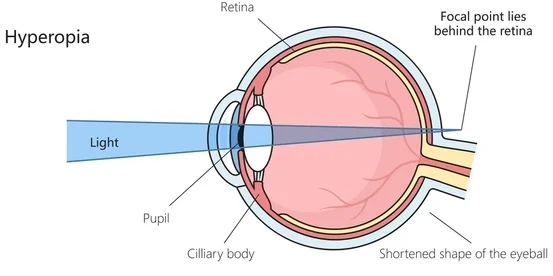
Astigmatism is a condition where vision appears blurry or distorted at all distances. It happens when the cornea or lens has an irregular shape, preventing light from focusing properly on the retina.
Symptoms include blurry or fuzzy vision, eyestrain, headaches, and difficulty seeing clearly. Narrowing the eye to improve focus is also common.
Causes can be hereditary or develop due to constant rubbing. Both children and adults can have astigmatism, and it often occurs alongside myopia or hyperopia. Regular eye check-ups and corrective lenses or treatments like LASIK can effectively manage astigmatism.
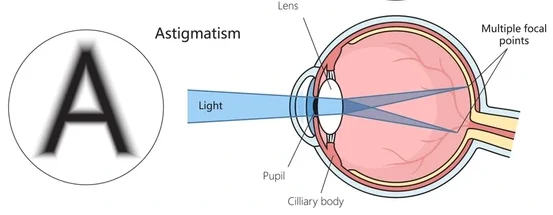
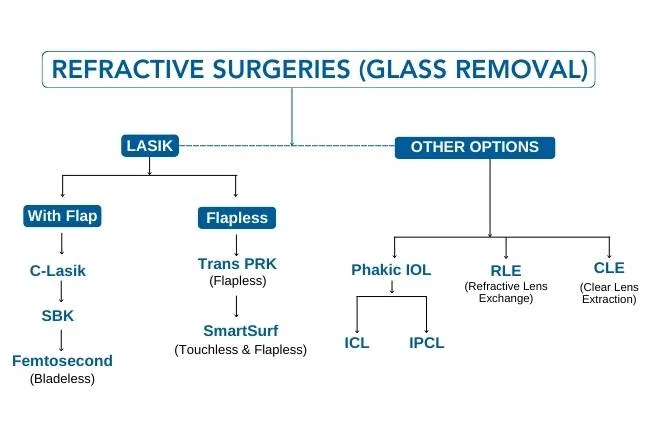
SmartSurf is a touchless, flapless, and one step procedure. This is the latest method to remove glasses. Even when other LASIK types don’t suit at that point also SmartSurf changes the game.
This is the simplest technique because it's mechanized and done in one step. For tissue access, the excimer laser gently removes epithelium from the cornea. It then reshapes the cornea with the same laser.
Finally, a bandage contact lens protects the cornea and epithelium. Five days following surgery, this contact lens is removed. After surgery, the epithelium layer regenerates over a few days.
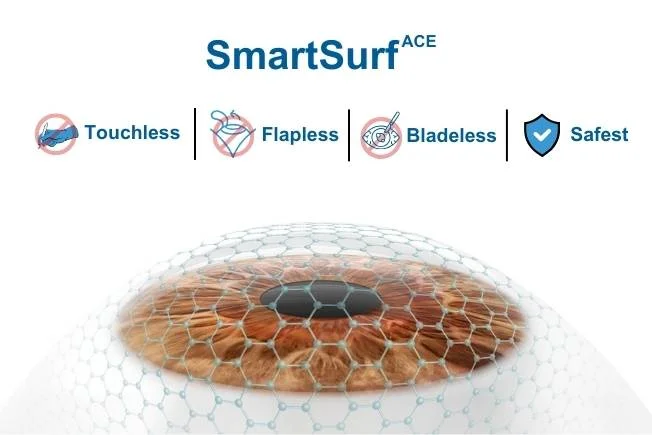
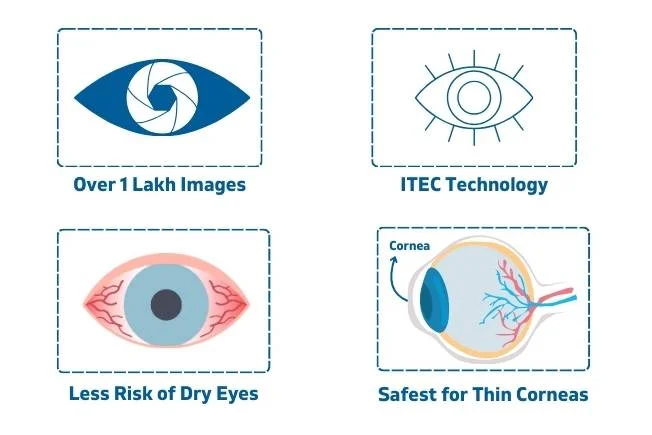
Femtosecond Lasik is the most common refractive procedure which involves reshaping of the cornea with a laser. This is also named as Bladeless Lasik. This laser is used twice in the surgery, firstly to create a flap and secondly to correct the refractive error.
This is the most efficient, precise, predictable and safe way to correct vision issues for patients with mild to moderate amounts of myopia, hyperopia and astigmatism.
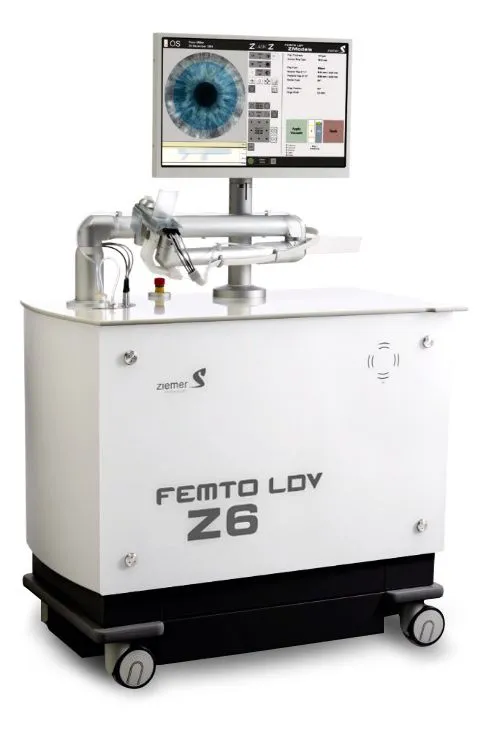
Topo-guided contour treatment, also known as Contoura Vision, combines prescription with corneal topography maps and provides an improved quality of vision. This is an additional step taken after the correction of refractive error.
It provides a highly precise and accurate mapping of 22,000 points on cornea which can identify hidden irregularities. The goal is to enhance vision by optimizing the way light enters the eye.
More than 90% of the people treated with Topo Guided Contour experienced a vision sharper than a vision with glasses.
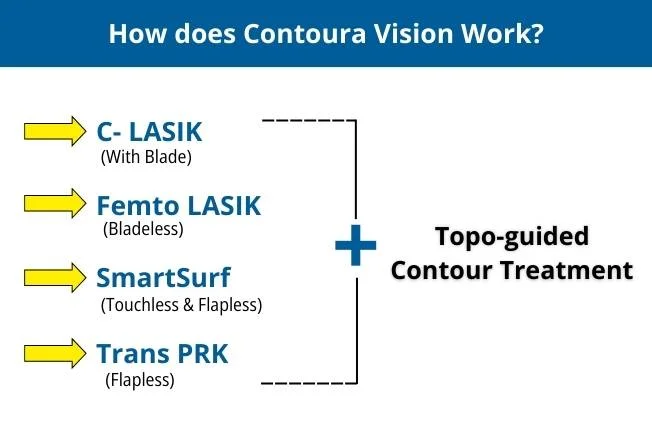
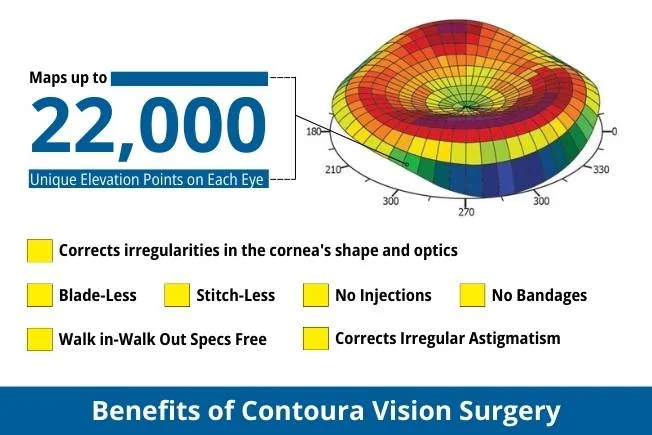
Trans PRK (Trans-epithelial Photo Refractive Keratectomy) is a technique that allows the laser to access and reshape the cornea without any sort of cutting or creating a flap. All the steps are done by the machine only. Thus, It is also known as Touchless and Flapless LASIK.
It is considered the most effective, precise, and advanced, the technique to correct the refractive errors and has been popular for its touch-free laser eye correction method.
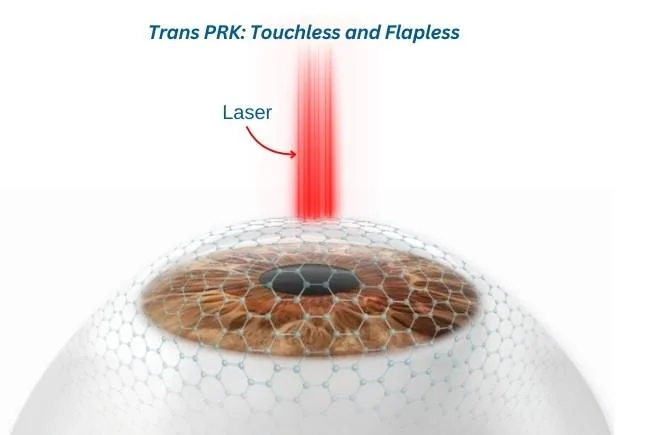
If you are not suitable for LASIK procedures due to high power prescription or thin cornea. Don’t worry, we can still help you rid of glasses.
Phakic IOLs, including ICL (Implantable Collamer Lens) and IPCL (Implantable Phakic Contact Lens), are advanced vision correction options for individuals with refractive errors like myopia, hyperopia, and astigmatism.
These lenses are implanted inside the eye without removing the natural lens, offering clear and stable vision for those who may not be suitable for laser-based procedures like LASIK.
ICL and IPCL is a technology superficially activated in the field of refractive surgery and received over 10 million satisfied customers in the last 20 years.
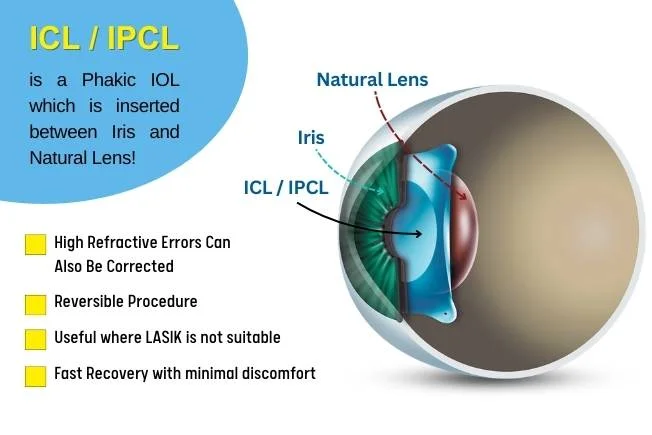
Phakic IOLs like ICL and IPCL offer a safe and effective alternative for those who may not be eligible for traditional laser vision correction, providing high-quality, stable, and reversible vision improvement.
Know all about ICL SurgeryCLE (Clear Lens Extraction) or RLE (Refractive Lens Exchange) is a surgical procedure designed to correct refractive errors such as nearsightedness, farsightedness, and presbyopia by removing the eye's natural lens and replacing it with an artificial intraocular lens (IOL). This procedure is similar to cataract surgery but is performed on individuals who do not have cataract but want to reduce or eliminate their dependence on glasses or contact lenses.
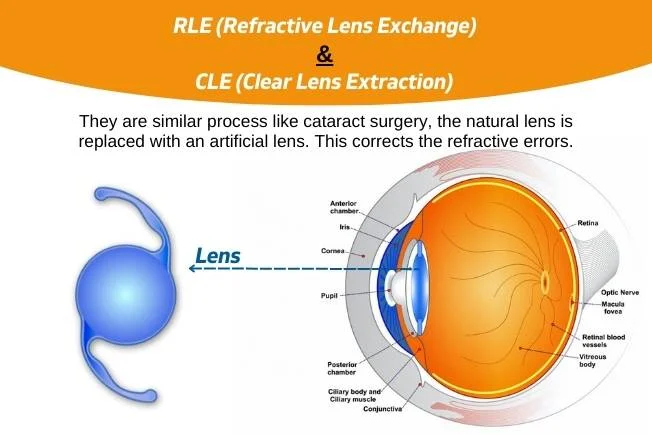
In Lasik surgeries with Flap (Customized LASIK with Blade and Femto LASIK), the below steps are followed:
1. Eye Numbing:
2. Creating the Flap:
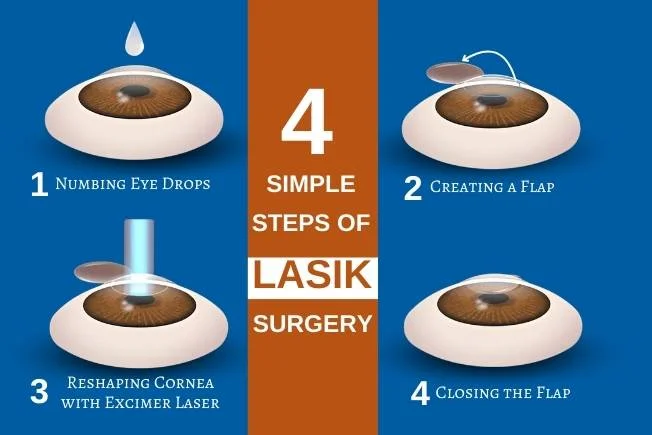
3. Reshaping Cornea:
4. Close the Flap:
In these 4 simple steps, you can look the world clearly without specs.
Dr. Rajeev Jain from Save Sight Centre is widely recognized as one of the premier refractive surgeon in Delhi, with more than 17+ years of experience and success.
Dr. Shuchi Gupta and Dr. Ankit Malhotra are also known to deliver outstanding outcomes during LASIK surgeries at Save Sight Centre. Their dedication to patient care and surgical precision as well as staying informed on all the latest advancements in refractive surgery makes them highly regarded and trusted by both patients and public.
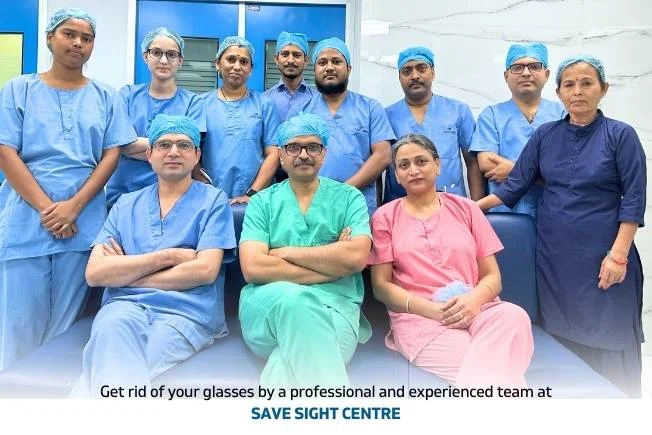
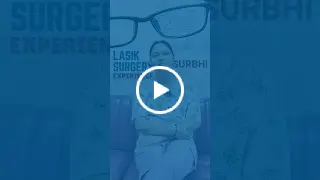
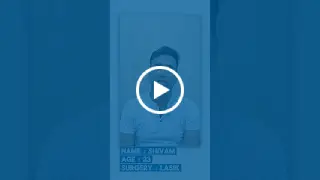
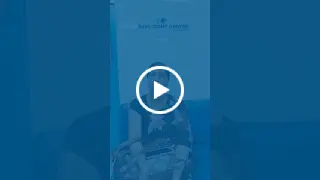
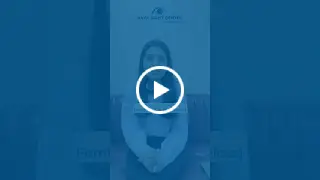
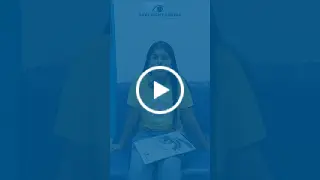

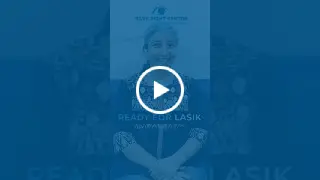
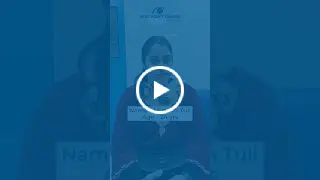
LASIK procedures are very safe and FDA-approved for use on human eyes. Like any surgery, there can be rare complications, but these are unlikely if proper screening is done beforehand. Some people may experience mild eye dryness, which can be treated with lubricating drops and usually goes away over time. Others may see temporary halos at night, which also improve with time. After the procedure, mild heaviness and blurred vision are common, caused by the numbing eye drops used. These side effects are rare and can be managed by your doctor. In our experience, no one has ever lost their sight from this procedure.
LASIK provides long-lasting vision correction, but it's not always permanent. Your eyes can change as you age, which might require additional vision correction later in life.
LASIK surgery is usually not painful. Before the procedure, your eye will be numbed with special drops. You might feel some pressure or discomfort, but it's typically brief. Afterward, your eyes may feel a bit scratchy or dry for a day or two but that is manageable by the lubricating eye drops.
You must be 18 or older to be eligible for LASIK. There are more factors to be eligible for this safest surgery of glass removal. Also, the age limit for this surgery is generally considered 45 years as after that you may require glasses for near work.
98% of people are usually suitable for LASIK. If you're not, your doctor may recommend other vision correction options, like ICL, IPCL, RLE.
LASIK can eliminate the need for glasses or contact lenses, but one might need glasses as he/she ages.
LASIK eliminates the power at the present but does not guarantee the lifetime solution. The power may fluctuate in future. Specially, as we age, there is need for glasses for near vision tasks.
LASIK recovery is relatively quick. Most people can return to normal activities within 3 days after the surgery. You might experience some temporary discomfort and fluctuations in vision during the first few days to weeks.
Not everyone is a good candidate for LASIK or other laser eye surgeries. People with certain eye conditions, unstable prescriptions, or health issues like diabetes may not be suitable. Your eye doctor will assess your individual eye condition to determine if LASIK is right for you.
The cost of the LASIK surgery starts at just Rs. 10,000 per eye at Save Sight Centre. However, It depends on your hospital and type of LASIK chosen by you.
If you have any other serious problems like uncontrolled diabetes, glaucoma, macular degeneration, keratoconus (corneal thinning), etc then you should avoid this surgery until your eyes become healthy. Also, Pregnant women are not eligible (as hormonal changes take place).
Follow-ups after LASIK are usually done the next day, the next week, and then monthly for 2 months. Your doctor will guide you on the exact schedule.
LASIK can have side effects, although they are usually temporary. These may include dry eyes, glare, halos, or difficulty with night vision. Serious complications are rare but can occur. It's crucial to discuss potential risks and benefits with your surgeon before the procedure.
You can return to most routine work after 7 days. If your job involves physical labour, liquids, or dust, talk to your surgeon about when it's safe to resume fully.
Copyright © 2025 | Save Sight Centre | All Rights Reserved.